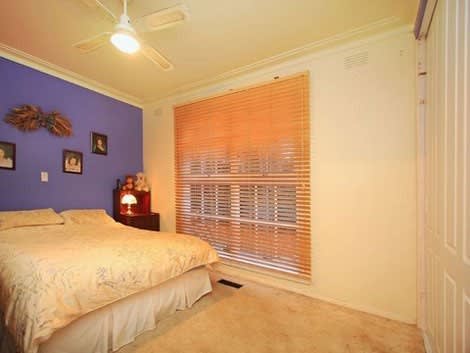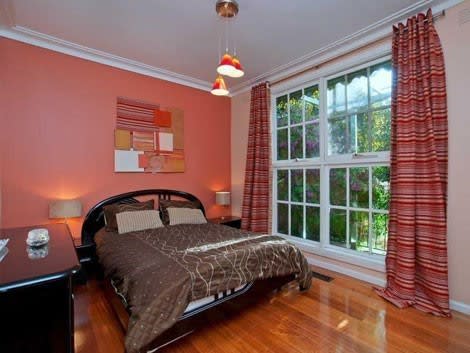A professional home stager can turn your offering into a standout property
The concept of home staging is relatively new here in Australia, while in the US it has been around for decades. In fact, most home sellers there do not even consider putting their property on the market without it being prepared by a professional stager.
The term “staging” was coined in 1972 by Barb Schwarz to refer to the process of preparing a home for sale, and turned her idea into a brand-new industry. According to Schwarz part of selling a property involves the same activity as putting on a play: you have to design the sets so that the audience is drawn into the drama, where potential buyers are your audience and real estate agents the critics of each other’s listings.
Home staging is the art of decorating a home to sell quickly and for top dollar. It can be anything from recommending de-cluttering and repairs to changing wall colours and arrangement of furniture and art.
However, staging is not decorating. Decorating means injection of owner’s personality into the house and turning it into a home, whereas staging does exactly the opposite: it neutralises space, making it appeal to the broadest range of potential buyers.
Buyers should be able to visualise themselves living in the house and not be distracted with splashes of sellers’ personal taste such as collections, artwork and wall colour, which can often be quite exotic.
The main aim of house staging is to create warm inviting spaces so that potential buyers will immediately fall in love with the house.
Staging is an investment, not expense.
However, there are still lots of home owners who are not able to recognise all the benefits of staging and look at it only as an expense. But in reality the cost of staging is always much lower than the cost of a first price reduction.
Statistics show that the services of a professional home stager will typically return more than 300% on the investment and gets home owner a higher initial offer in a shorter period of time (about half the time of an unstaged home).
It is always sad to watch how the selling price of another baby boomer’s property has been reduced after being on the market for a couple of months only because the way property is presented doesn’t match the expectations of generations X and Y, their target market. Sellers often don’t realise that this collection of cute teddy bears and charming old sofas with floral patterns seems dated and depressing to younger people and unfortunately most of them just are not able to imagine how this beautiful old house would look if it was decorated differently.
The home owner in today’s economy just cannot afford a “sell as is” mentality. It is no longer enough for homes to be neat and clean. A house has to be “packaged” so that it can appeal to the broadest range of potential buyers.
It might be worthwhile to hire a professional stager to speed up the sale process, especially if you are time conscious and have to sell quickly. The most common scenarios are as follows: you are facing repossession, moving interstate or overseas, going through divorce, have already bought another property and sitting on two mortgages. In any of these situations not calling on a stager may seriously hurt your finances.
Why use a home stager?
- You will sell your house faster and for more money
- Your house has been on the market for some time and you have not had any good offers.
- You don’t have time to do all the work by yourself.
- You simply don’t know what has to be done to transform your house.
- Stager will create welcoming spaces so that when your agent takes pictures for the agency’s website it will increase the number of buyers on each inspection.
The staging process is simple and stress free.
A professional stager will normally do two to three hours of consultation, explaining in detail what should be done in order to sell the property faster and for top dollar. At the end of the visit you’ll be left with a detailed list of instructions. You can do some things by yourself and ask your stager to take care of the rest: the choice is yours. Normally staging recommendations are based on the client’s budget, time availability and target market.
Some useful tips for staging your house.
1. De-clutter.Remove all the sporting equipment, vacuum cleaners, piles of documents and magazines from bedrooms and living areas. Turn rooms that have been used previously as dumping grounds for unwanted items into bedrooms or a home offices.
2. Remove all family photos, religious artefacts and kids’ artwork.
3. Create a focal point in every room such as a feature wall or oversized modern art work, mirror and console table. This will help potential buyers to memorise you house better.
3. If bedding in your house is old and worn it is time to go and buy a new set.
4. Get rid of unpleasant odours. If you are not able to detect an odour yourself, ask friend or relative if your house got one. Most common offenders are: pet smells, some food, cigarettes. Move pets’ beds and toilets to the laundry, do not cook curry or fish dishes before the inspection and smoke only outside.
5. Put vases with fresh flowers and bowls with colourful fruits in living areas.
Bedroom before: This dated and tired bedroom needed a new wall colour and flooring

Bedroom after: Replacing the window treatment brings in more light. By changing flooring and adding contemporary lighting, wall art and bedding Home New Look team created a chic and welcoming bedroom.

Vlada Alfimov is a professional home stager at Home New Look House Staging and Redesign